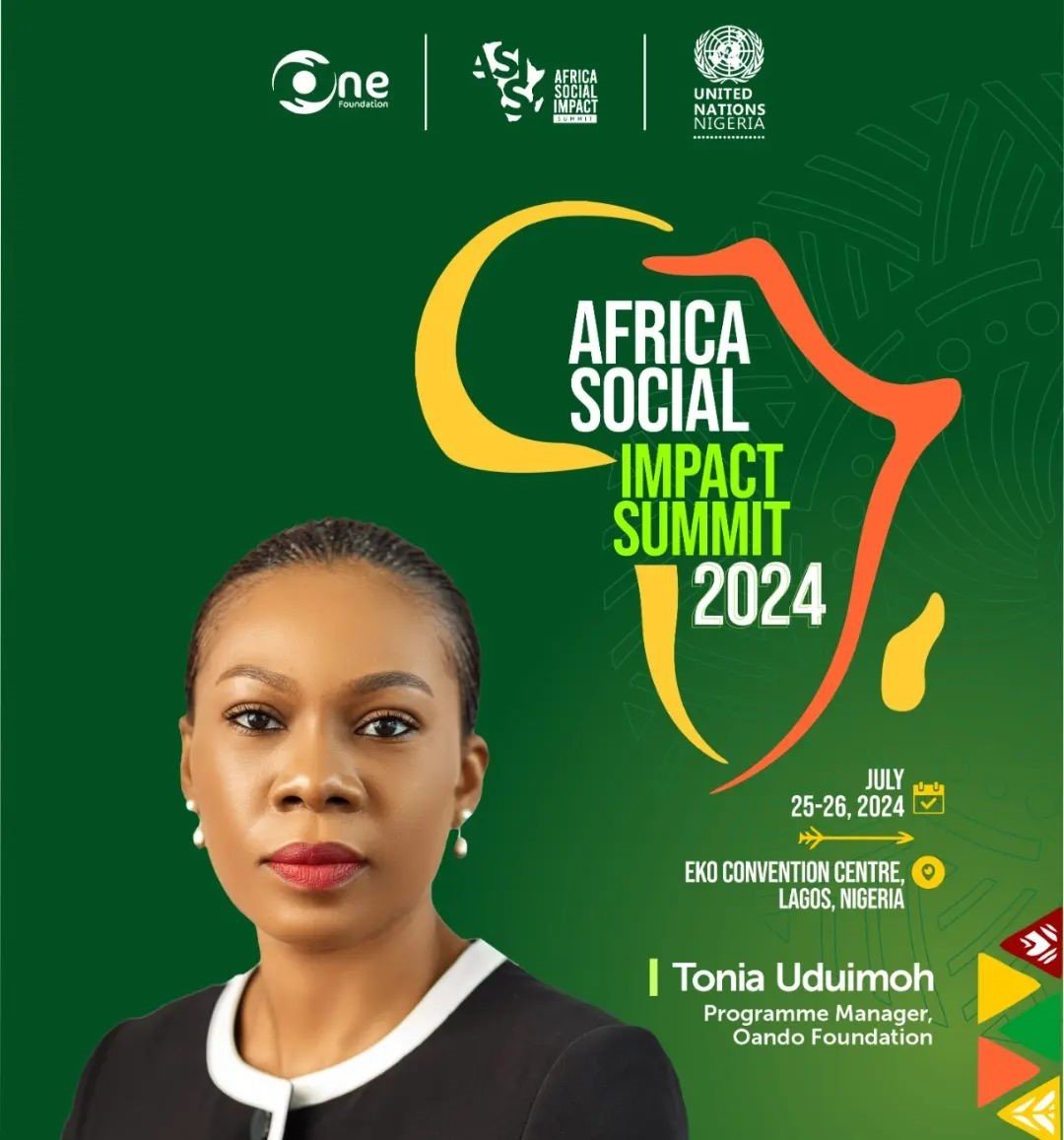At the Africa Social Impact Summit (ASIS) held on July 25th in Lagos, Tonia Uduimoh, the Programs Manager at the Oando Foundation, made a compelling case for urgent reforms in Nigeria’s education system. The summit, organized by the Sterling One Foundation under the leadership of Olapeju Ibekwe, centred around the theme: “Reimagining Progress: A New Blueprint for Sustainable Growth in Africa.” Uduimoh’s contributions highlighted the pressing need for educational transformation to empower Africa’s youth and position the continent as a global talent hub.
During the panel session titled “Foundational Learning: Importance For Youth Employability And Positioning Africa As The Global Talent Sourcing Frontier,” Uduimoh shed light on the current challenges facing Nigeria’s public education system. She noted, “The public school system in Nigeria is not as good as it used to be across the board. The government is not budgeting enough to meet its education demand.” She stated that Nigeria’s current education budget is less than 7% of the national budget.
Her comments emphasized the critical funding gap, which has led to a deterioration in the quality of education provided to students in public schools. She called for increased government investment to address these challenges and improve educational outcomes.
Therefore, she outlined the Oando Foundation’s commitment to supporting children in Nigeria’s public schools. “Our priority is children in the public school system. We are ensuring that learning is done in their mother tongue. We are also promoting digital learning opportunities,” she stated. By focusing on education in students’ native languages, the Oando Foundation aims to improve comprehension and engagement. The introduction of digital learning resources is also part of a broader strategy to equip students with the skills needed for a rapidly evolving technological landscape.
Uduimoh highlighted the foundation’s use of edutainment—educational entertainment—as a strategy to engage students and foster environmental responsibility. She explained, “We are also utilizing edutainment so that children become more responsible for their environment.” This innovative approach seeks to make learning both enjoyable and meaningful, encouraging students to take an active role in their education and develop practical skills for the future.
Uduimoh’s contributions at the Africa Social Impact Summit underscore the importance of reimagining education in Nigeria. By advocating for increased funding, innovative teaching methods, and a focus on real-world skills, she envisions an education system that empowers the next generation of African leaders and positions the continent as a leading source of global talent.
Her panel session had an array of experts, including Prof. Tahir Mamman, Honourable Minister of Education (Nigeria); Daniel Ikuenobe, Lead Consultant at Ace Analytix; Dr Amel Karboul, Founder/ CEO of The Education Outcomes Fund; and Albert Nsengiyumva, Executive Secretary, Association for the Development of Education in Africa (ADEA). The delectable Toyin Adegbite-Moore, Executive Vice President for Africa and Europe for REACH HQ, moderated the panel discussion.
About ASIS
The Africa Social Impact Summit (ASIS) is a convening for inclusive development that provides an opportunity to develop market-led solutions to Africa’s social challenges. Co-convened by the Sterling One Foundation and United Nations Nigeria, the summit brings together key players across sectors to share knowledge, discuss evidence-based insights, and develop action plans for achieving the Sustainable Development Goals (SDGs).
In addition to fostering new frameworks for sustainable development, the summit provides a platform for impact investors to invest in African solutions addressing issues such as climate change, the circular economy, education, health, water, sanitation and hygiene (WASH), renewable energy, and agriculture.



